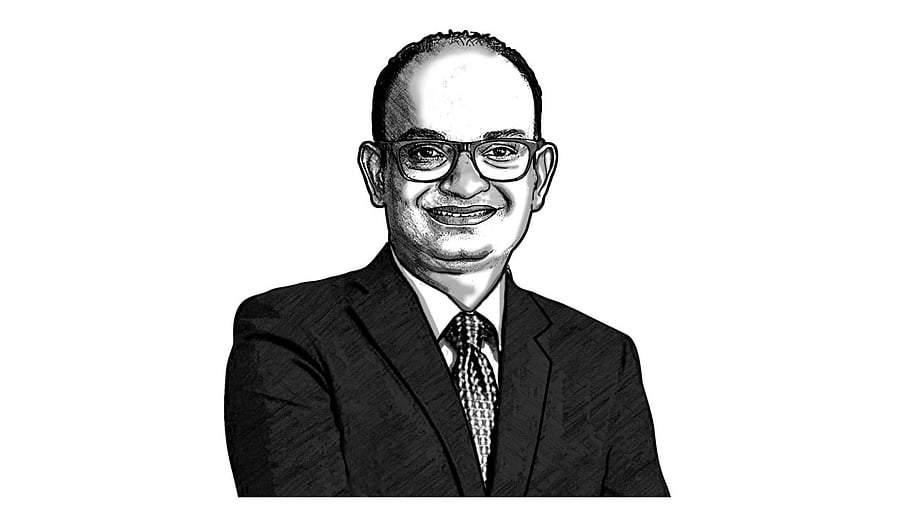
Gopichand Katragadda The former CTO of Tata Group and founder of AI company Myelin Foundry is driven to peel off known facts to discover unknown layers @Gkatragadda
Following the passing of Sunjay Kapur earlier this year, the Sona Comstar board found itself in a family succession struggle. His mother sought a postponement of the annual general meeting, but the board, citing procedure, pressed ahead.
The clash laid bare how succession is not only a family matter but also a test of Board effectiveness. India’s first all-electric ride-hailing platform, BluSmart, suspended operations in April 2025 amid allegations that co-founder Anmol Singh Jaggi misappropriated funds from Gensol Engineering, sparking a governance crisis, mass resignations of independent directors, and a collapse that affected drivers, investors, and enterprise value.
These examples illustrate the ongoing need for robust governance frameworks driven by competent Boards as companies expand and scale. Across public enterprises, listed corporations, and private companies alike, Boards are charged with safeguarding fairness, ensuring accountability, and guiding institutions through prosperity and peril.
The Mahabharata offers powerful lessons in terms of councils and governance. In the Kuru court, Draupadi was dragged into the assembly after the fateful dice game. Humiliated, she asked with clarity: “Whom did Yudhishthira stake first, himself or me? If he lost himself, how could he stake me?” It was a piercing question of law and justice. Yet the council, filled with the mightiest of elders, fell silent.
Dhritarashtra, the blind king, paralysed by his attachment to Duryodhana, is unwilling to uphold fairness. Bheeshma and Dronacharya, the grandsire and the teacher, had the stature to intervene but had bound themselves in oaths and obligations, their hands tied by promises of loyalty. Karna, the generous and valiant warrior, might have stood for justice, but his own sense of illegitimacy – the shadow of being raised outside his true lineage – fuelled an inner conflict. His imposter syndrome pushed him to side with Duryodhana even when his conscience wavered. And Duryodhana, headstrong and triumphant, revelled in the spectacle, driving the council further into ruin.
That collective silence was the actual collapse of governance. Long before Kurukshetra, Hastinapura had already lost its moral centre in the council chamber. It is tempting to leave this episode in the realm of epic tragedy. Yet, when we examine it through the lens of our own times, it becomes a parable about governance. The Kuru court can be read as a boardroom: Dhritarashtra, the compromised Chair, Duryodhana, the domineering MD, Bheeshma and Drona, the promoter-directors who chose loyalty over conscience, and Karna, the conflicted independent director. Their failure to speak or act promptly mirrors the lapses we continue to see in modern institutions.
We see echoes of that silence today. In India, the Comptroller and Auditor General recently flagged that 26 out of 71 central public sector enterprises lacked proper board composition, more than 50 had inadequate independent directors, and 20 did not have a woman director. When promoters and insiders dominate, and when independents are either missing or conflicted, the boardroom turns into Hastinapura’s court – a theatre of loyalty rather than a forum of conscience.
Globally, too, governance lapses are writ large. At the World Economic Forum, Klaus Schwab’s resignation came only after whistleblower accounts of toxic culture and misuse of resources. Trustees had to overrule their founder to launch an independent probe. Even institutions that sit at the high table of global dialogue are not immune when councils defer too long to their leaders.
The patterns are not lost on regulators. In India, the 2025 amendments to the Companies Act have tightened compliance requirements, including real-time disclosures within seven days, heavier penalties for lapses, and a stronger emphasis on transparency. These are attempts to ensure boards cannot hide behind process delays or passive silence.
Globally as well, boards are playing the balancing act: they must weigh agility against oversight, embrace technology such as AI for decision support without compromising judgement, and anticipate geopolitical risks even as they champion sustainability.
And yet, not all is bleak. There are examples of good governance worth emulating. Several Indian boards have taken commendable steps in recent years – from transparent succession planning in companies, to professionalising family-owned firms by inducting truly independent directors, to strengthening board diversity in sectors such as banking. Globally, companies such as Unilever have set benchmarks in sustainability-driven governance, while Microsoft and Apple have been praised for clear succession pathways and robust risk committees. Even some sovereign wealth funds have restructured their boards to incorporate external voices with expertise in environmental and societal knowledge.
The Mahabharata warns us that councils that remain silent in the face of wrongdoing do not just cause short-term issues; they have long-term consequences for all stakeholders. The positive stories today remind us of the opposite: when boards are diverse, independent, transparent, and courageous, they go beyond merely preserving value. They create it.
The writer is the former CTO of Tata Group and founder of AI company Myelin Foundry is driven to peel off known facts to discover unknown layers.
Disclaimer: The views expressed above are the author's own. They do not necessarily reflect the views of DH.